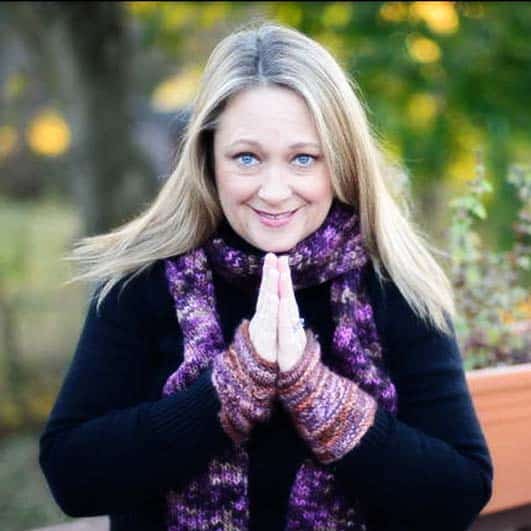Grief is an uninvited teacher, presenting lessons wrapped in the discomfort of loss. Whether through the death of a loved one or a non-death loss, such as the end of a relationship or a significant life change, grief challenges our foundational beliefs about the world, ourselves, and others. Understanding your assumptive world and core beliefs can help you mindfully reframe what no longer serves you.
Understanding the Assumptive World and Core Beliefs
Our assumptive world is like a mental map we use to navigate life. It's composed of the core beliefs we hold about ourselves, others, and the world at large. These beliefs are often formed early in life, influenced by our upbringing, experiences, and the society we live in. They help us make sense of the world and our place within it, providing a sense of predictability and security.
Core Beliefs: Patterns in Experiences and Thoughts
Core beliefs are the deeply held convictions that form the foundation of our assumptive world. They are the essence of how we see ourselves, others, and the environment around us. These beliefs manifest in statements such as "I am...", "People are...", and "The world is...". They can be positive, fostering a sense of worth, love, and safety, or negative, leading to feelings of helplessness, unworthiness, or being unlovable.
Judith Beck (2005, 2011) highlights how dysfunctional assumptions and negative automatic thoughts stem from these core beliefs, influencing our behavior and emotional responses. Identifying these patterns is the first step toward understanding how grief affects us on a fundamental level.
Natural Fears and Their Role
Certain fears are hardwired into us as part of our survival instinct—fear of falling, loud noises, and abandonment. These primal fears can be seen as the roots from which our more complex core beliefs grow, shaped and nurtured by our life experiences.
Dysfunctional Assumptions and Negative Automatic Thoughts
Dysfunctional assumptions are rigid, inflexible beliefs that are often inaccurate and negative. They can lead to negative automatic thoughts, which are spontaneous, reflexive thoughts that occur in response to specific triggers, especially during stressful situations like experiencing loss. These thoughts can reinforce our deepest insecurities and fears, trapping us in a cycle of negative thinking and emotional turmoil.
Attachment Styles and Grief
Our attachment style—be it anxious, fearful-avoidant, or dismissive-avoidant—also plays a significant role in how we process grief. These styles, formed in early childhood, influence how we relate to others and cope with loss. Understanding your attachment style can offer insights into your grief reactions and help in finding more effective coping strategies.
Navigating Loss Through Understanding Core Beliefs
Grief can shatter our assumptive world, but it also offers an opportunity for profound growth and transformation. By examining and adjusting our core beliefs, we learn to live with our loss, not by moving on from it, but by integrating it into a new understanding of ourselves and the world around us. This journey is not about healing in the sense of returning to a previous state but about evolving into someone who can carry their grief with strength, compassion, and resilience.
In the face of loss, remember: You are not alone. Your feelings are valid, and your journey through grief is uniquely your own. While the path may seem daunting, it's paved with opportunities for self-discovery and growth. Here's how to continue nurturing resilience and compassion as you navigate your loss:
1. Identify Your Core Beliefs
Start by observing your thoughts and emotional reactions, especially those triggered by your loss. Look for patterns or recurring themes in your self-talk. Are there underlying beliefs about yourself, others, or the world that are being challenged or reinforced by your grief?
2. Challenge Dysfunctional Assumptions
Once you've identified negative or dysfunctional assumptions, challenge them. Ask yourself whether these beliefs are truly accurate or if they're based on outdated or mistaken interpretations of your experiences. This process can be difficult, as it requires confronting deep-seated fears and vulnerabilities, but it's essential for healing.
3. Transform Your Assumptive World
The goal isn't to discard your assumptive world but to transform it into one that accommodates your current reality, including the reality of your loss. This involves integrating new experiences and understandings into your core beliefs, allowing for a more flexible and compassionate view of yourself, others, and the world.
4. Seek Support and Connection
You don't have to navigate this process alone. Connection with others, whether through support groups like Awaken Online Grief Support Program, therapy, or conversations with trusted friends, can provide validation, empathy, and new perspectives. Sharing your experiences and hearing others' can be a powerful way to challenge and reshape your assumptive world.
5. Embrace Self-Compassion
Be kind to yourself during this process. Grieving is not a sign of weakness but a profound expression of love and loss. Allow yourself to feel your emotions without judgment. Practicing self-compassion can help mitigate feelings of unworthiness or self-blame that might arise from challenging your core beliefs.
6. Cultivate Mindfulness and Presence
Mindfulness can be a valuable tool in observing your thoughts and emotions without becoming overwhelmed by them. Techniques such as meditation, journaling, and mindful movement can help you stay grounded in the present moment, making it easier to identify and address negative automatic thoughts and assumptions.
7. Explore New Perspectives
Exposure to new ideas, experiences, and cultures can broaden your assumptive world and introduce more nuanced and flexible core beliefs. This might involve reading, travel, taking up new hobbies, or engaging in conversations that challenge your existing viewpoints. Each new experience offers a chance to reshape your understanding of the world.
8. Reinforce Positive Core Beliefs
While identifying and challenging negative beliefs is crucial, so is reinforcing positive ones. Focus on experiences that affirm beliefs such as "I am capable," "People can be supportive," and "The world can offer beauty even in pain." Engaging in activities that make you feel competent, connected, and appreciated can help strengthen these positive beliefs.
9. Be Patient and Persistent
Transforming your assumptive world and core beliefs is a process that takes time and patience. There may be setbacks and moments of doubt, but each step forward, no matter how small, is a part of your journey toward healing and growth. Celebrate your progress and recognize that resilience is built through perseverance.
10. Seek Professional Help When Needed
If navigating your grief and challenging your core beliefs feels overwhelming, seeking professional help can provide support and guidance. Therapists, especially those experienced in grief counseling, can offer strategies and insights to help you through this process.
Learning How To Live With Loss
The journey through grief is not about erasing the pain but about learning to live with it in a way that honors your loss and yourself. It's a path that can lead to a deeper understanding of who you are, a renewed sense of connection with others, and a more compassionate view of the world.
If you're looking for support and guidance on this journey, consider joining the Awaken Online Grief Support Program. It's a space where you can find community, understanding, and resources to help you navigate your grief with mindfulness, movement, and connection. Together, we can explore ways to cultivate resilience and find meaning in the midst of loss.
Remember, grief is a testament to love, and through understanding our assumptive world and core beliefs, we can learn to carry that love forward, transformed but enduring.


